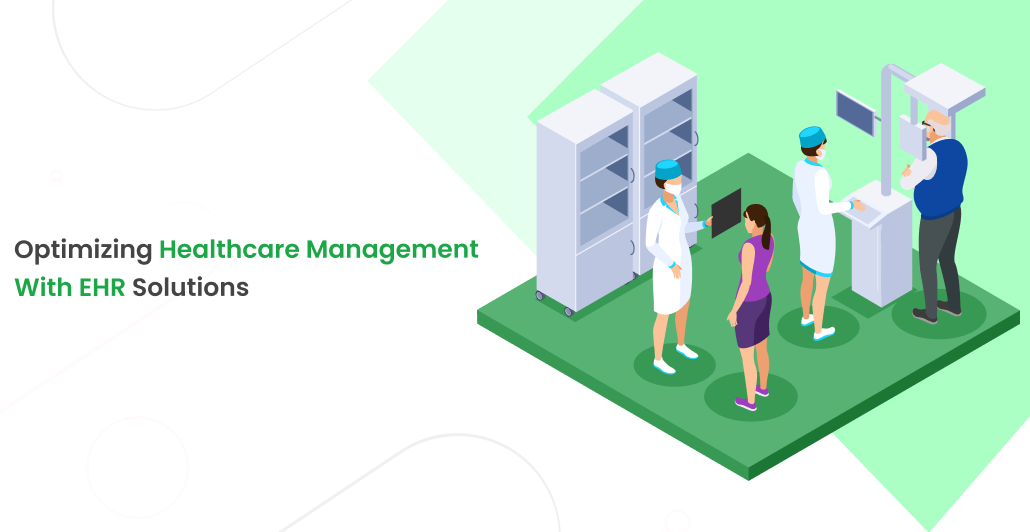EHR has revolutionized the health sector entirely as it helps streamline operations towards better care of the patients and, on a related note, boosts efficiency. To that effect, here is an in-depth review of what EHR software can offer, what electronic health record system software role in contemporary care, and its impact in medical practice settings across the globe.
What is EHR Software?
EHR software is an electronic system meant to store, manage, and share patient health information. Compared to traditional paper records, Electronic Health Records systems provide healthcare professionals with real-time access to important patient information. Such immediate access facilitates timely cooperation between healthcare teams, ultimately resulting in better decision-making and improved patient outcomes.
This technology has been adopted in healthcare facilities across the globe to cope with the current demands of modern medicine for example EHR software in India. Such systems ensure that all the patient data are secure and retrievable when need be because they integrate EMR software development and advanced analytics.
Challenges in implementing EHR systems
Although the benefits of an electronic health record system are huge, its implementation is not that easy. Being able to understand the challenges facing such a program will be instrumental in helping providers optimize the EHR implementation process.
-
Implementation Cost
Implementation of EHR software involves a tremendous amount of upfront investment required for hardware, software, and training. Such expenses can prove too high on the budgets of small healthcare facilities in case there is improper planning and resources.
-
Data Migration
Migration from paper-based records to EHRs is a data migration process that should be done carefully. The data transferred should be accurate and complete in order not to have differences that impact patient care.
-
User Resistance
New technology adoption is bound to face resistance from the staff who have been accustomed to doing things in the traditional way of doing things. Proper training and answering questions on usability will be important in ensuring that the EHR software is well incorporated.
-
Compliance and Security
The patient information is guaranteed to be both regulation-compliant and free of data breaches. Additionally, ensuring that the EHR software adheres to standards like HIPAA would be a complex yet unavoidable step in the process.
Trends for the Development of EHR Software
The development of EMR software is mainly influenced by technological advancements and changing needs in healthcare. The following are some of the trends that shape the future of EHR software:
-
Telemedicine Integration
During the expansion of telemedicine, the integration of virtual care platforms with electronic health record system software is also essential because it provides smooth communication and data sharing between the patient and the provider.
-
Artificial Intelligence
AI turns the EHR software on its head. In this, predictive analytics, automation of routine tasks, and deep insights into the patient data enhance decision-making and help improve operational efficiency.
-
Mobility Accessibility
EHR software is becoming mobile-friendly. It lets the health care providers access and update patient information on the go. It helps especially in home healthcare and emergency services.
-
Interoperability
Interoperability is the core focus of EHR software development. The designing of systems that can communicate easily with other healthcare technologies ensures comprehensive and coordinated care of patients.
EHR Software in India
Now, that healthcare providers are becoming aware and informed about the potential of EHR, the country is going all out to adopt EHR software. These include packages for diversified healthcare sectors with hospitals, clinics, and specialty practices. Indian-based developers of local ehr software have developed some of their own systems at the global level adapted to international requirements but fitted to the countries’ specifications.
Some Key Considerations Regarding Ethics in Use
Since electronic health records have been widely adopt, ethics are at the center. These include:
-
Patient Privacy
Protecting patient confidentiality is a fundamental ethical responsibility. EHR software must be designe with robust security features to prevent unauthorized access and data breaches.
-
Data Ownership
Who owns the data in an electronic health record system software? This question raises very important discussions about patient rights and the responsibilities of healthcare providers.
-
Accessibility
Equitable delivery of healthcare requires that all patients, regardless of their socioeconomic status, benefit from EHR software. One of the major ethical challenges is addressing disparities in access to technology.
Impact of EHR on Public Health
-
Disease Tracking
EHR software allows effective monitoring and reporting of diseases. Public health programs will soon be able to identify and contain the breakout. Aggregated data from Electronic Health Records Systems will aid in policy-developed targeted interventions.
-
Health Inequalities
The EHR software India will assist healthcare providers in identifying health inequalities among various populations. The analysis does support the fair provision of care.
EHR and Patient Engagement
-
Patient Portals
New-generation EHR software offers patient portals, which enable patients to view their health records, schedule appointments, and contact providers. This enables improved patient satisfaction and involvement in care.
-
Personalized Health Insights
With analytics, electronic health record system software creates a personalized health approach that will eventually empower patients to make informed decisions about health and wellness.
Training for EHR Implementation
-
Workforce Development
EHR Software should be put to use effectively by the healthcare staff through comprehensive training programs. Education investment prevents errors and brings about the maximum potential of the system
-
Change Management
Change management is an important requirement for managing the cultural shift to digital records. Supportive leadership and clear communication will ease the transition to electronic health records systems.
Benefits of EHR and Top Solutions
The role of EHR in modern healthcare should be understand with the benefits that come along with it. The systems ensure streamlined workflows, improved patient safety, and accuracy of data. In finding the best solution, one can look into the top EHR software to help healthcare providers find the system that suits their needs.
Conclusion
Electronic health records are no longer an option to be adopt but a management necessity in the modern delivery of healthcare. Today, the only way to be able to make a step forward is by using recently developed EHR software while developing EMR software. It is through this mechanism that hospitals maintain their edge advantage in the delivery of their service to patients.
Benefits Of EHR system software selection or the innovations in EHR software India, the complete game of success is at stake because of understanding and solving problems, trends, and ethical issues connected with new transformational technology. This will help EHR transform health care management into something new standard for better care for the patient.



